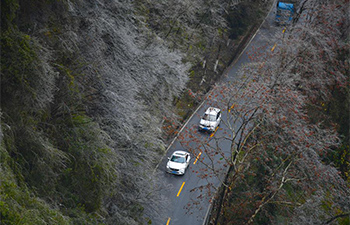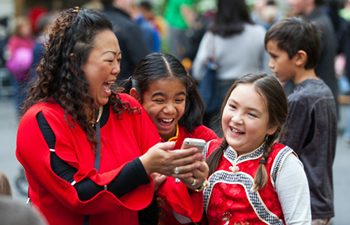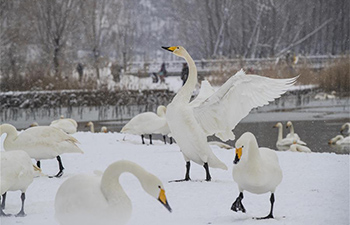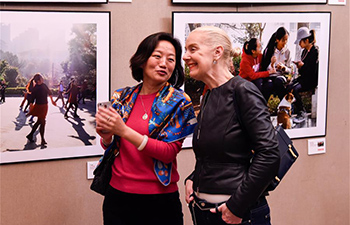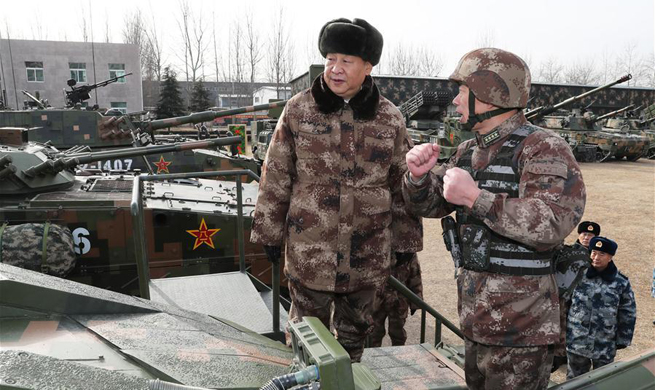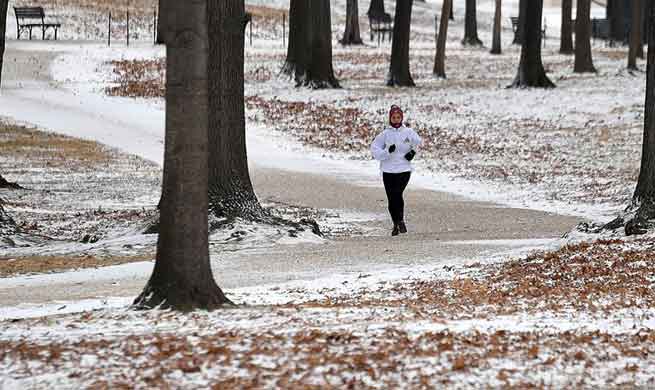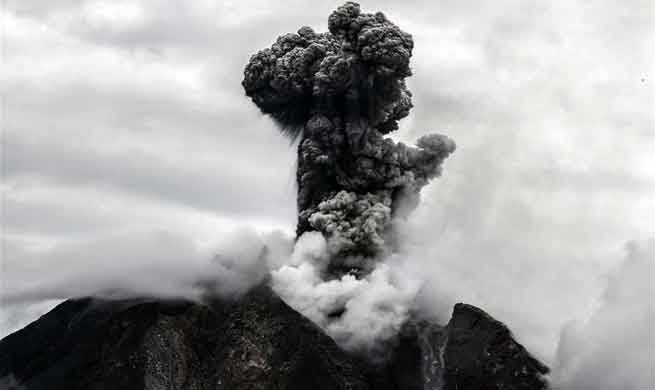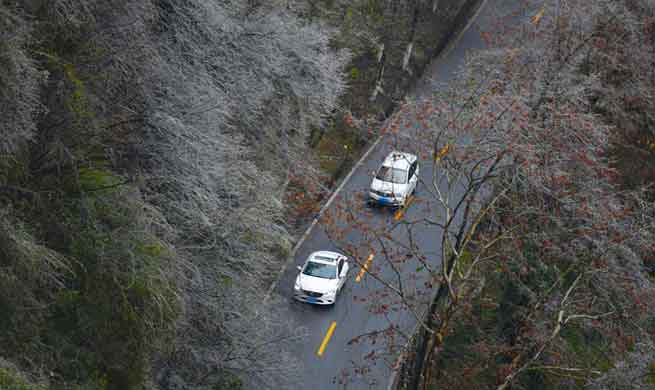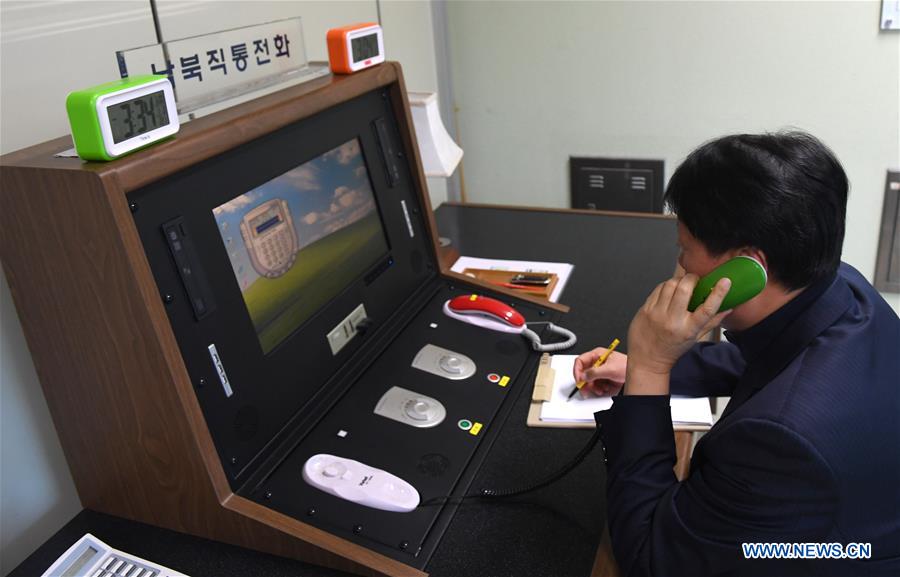
A South Korean government official communicates with the Democratic People's Republic of Korea (DPRK) side via the communication channel in Panmunjom, South Korea, on Jan. 3, 2018. South Korea's unification ministry in charge of inter-Korean affairs said Wednesday that it reopened a communication channel with the DPRK in the truce village of Panmunjom amid rising expectations for the DPRK's participation in South Korea-hosted winter sports event. (Xinhua/Ministry of Unification of the Republic of Korea)
SEOUL, Jan. 5 (Xinhua) -- The Democratic People's Republic of Korea (DPRK) on Friday accepted South Korea's offer to hold a senior-level, inter-governmental dialogue aimed at improving inter-Korean relations.
Baek Tae-hyung, spokesman of Seoul's unification ministry in charge of inter-Korean affairs, said in a regular press briefing that the DPRK side sent a notice to the South Korean side at 10:16 a.m. local time (0116 GMT) through the communications channel in the truce village of Panmunjom.
With the notice, which was sent in the name of Ri Son-kwon, chief of the Committee for the Peaceful Reunification of the Fatherland to South Korean Unification Minister Cho Myoung-gyon, the DPRK accepted Seoul's talks proposal.
South Korea proposed earlier this week to the DPRK holding the high-level dialogue on Jan. 9 at the Peace House, a building in the South Korean side of Panmunjom which straddles the heavily guarded inter-Korean land border.
If the talks are held as agreed upon, it will mark the first inter-Korean dialogue since South Korean President Moon Jae-in took office in May last year. The governments of the DPRK and South Korea had had no contact since the last was held in December 2015 between vice ministerial-level officials.
Baek said the dialogue agenda would include issues to improve inter-Korean relations and the DPRK's dispatch of its delegation to the South Korea-hosted Winter Olympics scheduled for February.
Details on how to form the delegations and who represents the delegations for the high-level talks will be discussed through the exchange of letters through the Panmunjom hotline, the spokesman said.
The Panmunjom hotline of direct dialogue between the two sides was reopened earlier this week for the first time in almost two years amid rising signs of a thaw in inter-Korean relations.
Top DPRK leader Kim Jong Un said in his New Year's Day address that his country was willing to dispatch the DPRK delegation to the 2018 PyeongChang Winter Olympics and to talk with South Korea about it.
The following day, Seoul made the dialogue overture to Pyongyang, which accepted it Friday.
On Thursday night, President Moon and U.S. President Donald Trump agreed not to conduct the annual springtime war games between Seoul and Washington during the PyeongChang Winter Olympic period.
The war games, which tended to kick off in mid-march and last by the end of April, could have coincided with the 2018 Winter Olympics slated for Feb. 9-25 and the Winter Paralympic Games on March 9-18.
Pyongyang has denounced the South Korea-U.S. joint military exercises, codenamed Key Resolve and Foal Eagle, as a dress rehearsal for northward invasion.
Meanwhile, a senior official of South Korea's presidential Blue House told local reporters that other issues between the two sides, including the reunion of separated families and military affairs, could be discussed after completing a discussion on the DPRK's participation in the PyeongChang Winter Olympics.
The unnamed Blue House official was quoted as saying discussions on improved inter-Korean relations could come after the completion of a discussion on the DPRK's Winter Olympic participation, but the official noted that it would be too early to predict how the discussions would go.
President Moon proposed last year to the DPRK holding humanitarian talks about the reunion of separated families across the two sides as well as the dialogue between the military authorities to ease tensions.
People from the two sides have been banned from visiting and contacting each other since the 1950-53 Korean War ended in an armistice, not a peace treaty. The Korean Peninsula remains technically in a state of war.




